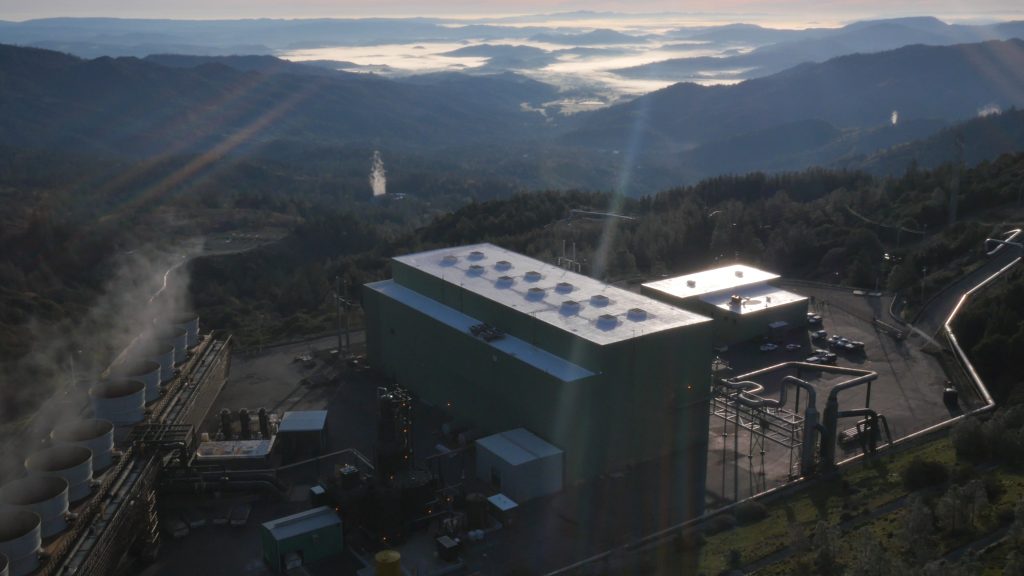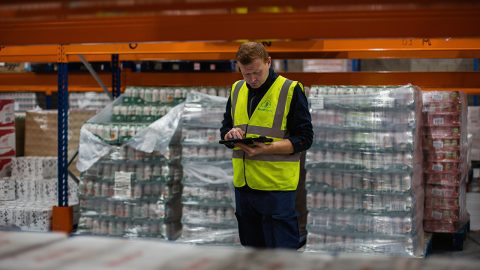Ecolab and Microsoft team to face water shortage challenges
Water is vital to life, but it’s a finite resource – 97.5 percent of it is salt water. The 2.5 percent that is fresh comes from glaciers, ice caps, groundwater, lakes, rivers, ice and snow. Your morning cup of coffee takes 55 gallons of water to produce, the shirt you’re wearing commanded another 700 gallons of water to produce, and the car you drive to work requires a staggering 39,090 gallons to build.
The demand for water has risen alongside population growth, urbanization, changing diets, rising demand for energy and increasing industrialization. Recent events such as the California drought are currently keeping water management in the public spotlight. Personal conservation – not watering lawns and taking shorter showers – is a start. But it’s only part of the solution.
The United Nations’ “World Water Development Report 2015” predicts that within 15 years, demand will outpace supply by almost 40 percent. That lack of freshwater will be a major source of stress for two-thirds of the world’s population.
Ecolab, a $14 billion company that is a leading global provider of water, hygiene and energy technologies and services, has partnered with Microsoft to use recent and future developments in cloud computing, applying cutting-edge technology to speed up how worldwide industries tackle water scarcity.
“Our goal of helping customers reduce water usage requires that we capture real-time information from processes anywhere around the world,” says Christophe Beck, president of Nalco Water, an Ecolab company. Ecolab needed better solutions for providing insight and connecting with customers. “We need to be able to control those processes remotely, and deliver the intelligence that enables our service personnel in the field to manage those processes.”
Ecolab has a vision to help companies engaged in industries such as energy, agriculture, food and beverage, manufacturing and hospitality achieve net-zero water usage, meaning producing goods with the absolute minimum amount of freshwater. Or in other words, everything they use can be infinitely recycled within their operation. To get to that goal, the company applies and reinforces principles of reducing, reusing and recycling water to more than a million customers around the world.
“What our customers truly want when they work with us is to first and foremost reuse their water usage. But at the same time, they want to make sure that the product they produce, being a car, being paper, etc., is really becoming a better product. And at the same time, ultimately, it’s to reduce their total operating cost,” Beck says. “It’s really a ‘virtuous cycle’ with less water, better results and much lower operating cost – everyone wins. Because ultimately, our customers want to be good corporate citizens, and to do something for the community.”
With the demand for water management services growing, Nalco Water, the main water operation within Ecolab, is creating ways to monitor and control industrial processes on a global scale. It started doing so at the very beginning of the Internet and has been a true pioneer of big data. Now thanks to the evolution of cloud-based services, big data and the Internet of Things, it’s an opportune moment to move forward with solutions that have the power and scale to meet that demand.
“We’re touching most of the vital operations within a plant from pretreatment to production processes through waste water,” says Beck. “Then you have all of the steps of cooling and boiling water. Connecting and controlling all of those operations within a plant to reduce water as a whole is the real challenge. That’s why we needed to work closely with Microsoft.”
The company wanted to gather and analyze data to improve production processes, and then use the aggregated data to benchmark with industry best practices and prove to customers that its solutions make sound business sense.
“Our mission at Microsoft is to empower every person and every organization on the planet to achieve more,” says Judson Althoff, president of Microsoft North America. “This will come to life in a powerful way through our collaboration with Ecolab. We’re excited to assist one of the world’s leading water treatment technology and service providers in creating solutions that preserve our world’s most precious natural resources.”
The collaboration with Microsoft brings in the Azure cloud computing platform and advanced analytical capabilities that deliver Nalco Water’s water management solutions on a much larger scale and at a much deeper level than it ever has.
With Azure, “Suddenly, complexity and size are no longer barriers,” says Beck. “We can capture any data, anywhere, and transmit that information around the world very rapidly. We can now harness the power of this platform to serve many more customers, measuring many more flows at many more plants than we could even conceive of in the past.”
By December, the collaboration will provide a suite of comprehensive, end-to-end service delivery solutions that bridge process monitoring and control; cloud platform for data management and analytics; mobile applications; and hardware. Ultimately, Ecolab’s customers will benefit from this by a better understanding of their return on investment on its water management program.
Nalco Water’s 3D TRASAR Technology, which provides real-time sensing and dosing of streams for cooling towers and other water-intensive processes, will deliver in-plant measurement and control. Thousands of sensors in thousands of facilities around the world makes up data from in-plant monitoring equipment, and that will be transferred in real-time to a secure cloud storage platform built on Microsoft Azure and Azure IoT Suite.
There’s another advantage to collecting so much data on a single data platform with the analytical power of the cloud: It helps establish operational benchmarks, by comparing millions of data points from common processes across thousands of plants and customers. With this information, the company will be able to identify ways to operate more effectively and efficiently.
Ecolab will use advanced analytics tools such as Azure Machine Learning, Power BI and predictive analytics to get data-driven insights and intelligence from the aggregated data. And then Ecolab employees operating in 170 countries can act on those insights using Microsoft Dynamics CRM Online, Microsoft Office 365 and Microsoft Power BI.
“Visualizing the power of data in an easy, simple and straightforward fashion is absolutely critical,” Beck says. “The new Microsoft cloud technology has helped us get much better data, on site and in real time where our people need it most. We have 25,000 sales and service people serving a million customers around the world, from nuclear plants to vaccine factories. The right data at the right time is absolutely essential.”
These tools will give them better intelligence about processes and performance. This will help them proactively engage customers and make recommendations for services that might lead to even greater reduction in water, energy and labor costs. They can even do this in the field with portable devices they regularly use, such as the Microsoft Surface Pro tablet.
“What truly impressed me with our Microsoft collaboration was that it was not about selling us a product. It was about building something and addressing the world’s water challenge together,” Beck says. “Water is essential because there is no life without water. There is no economic growth without water. There is no more consumption without water. There is no more people without water.”









